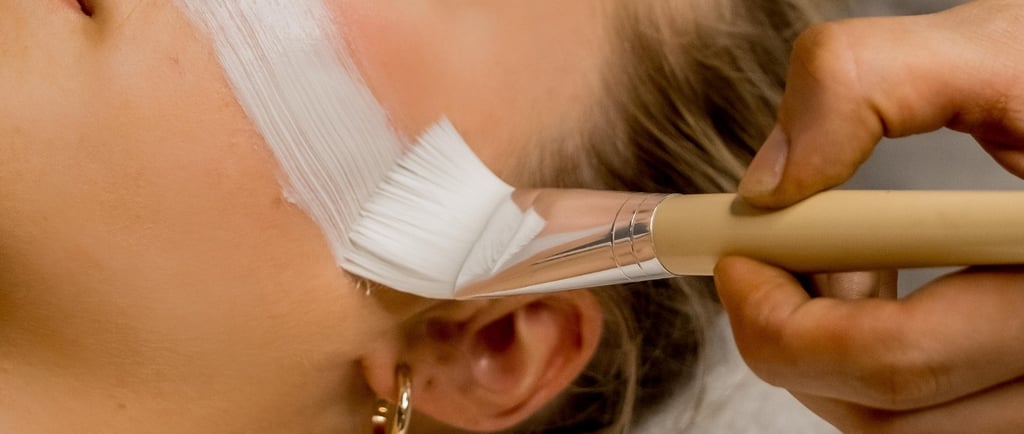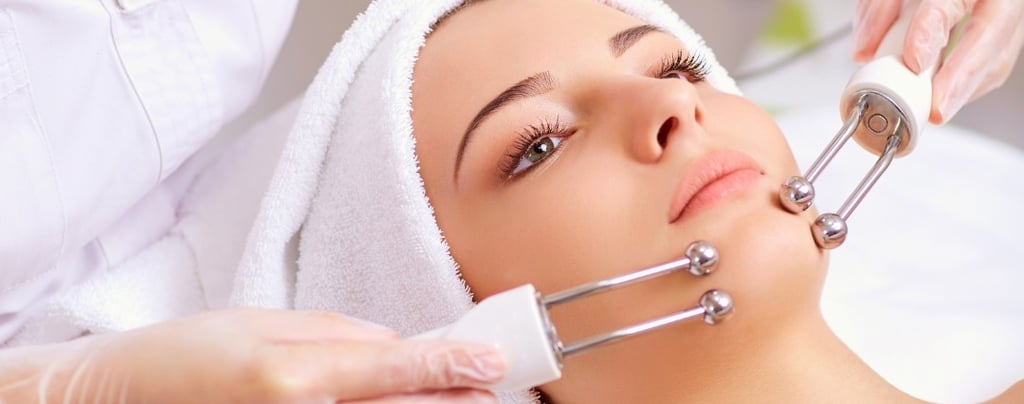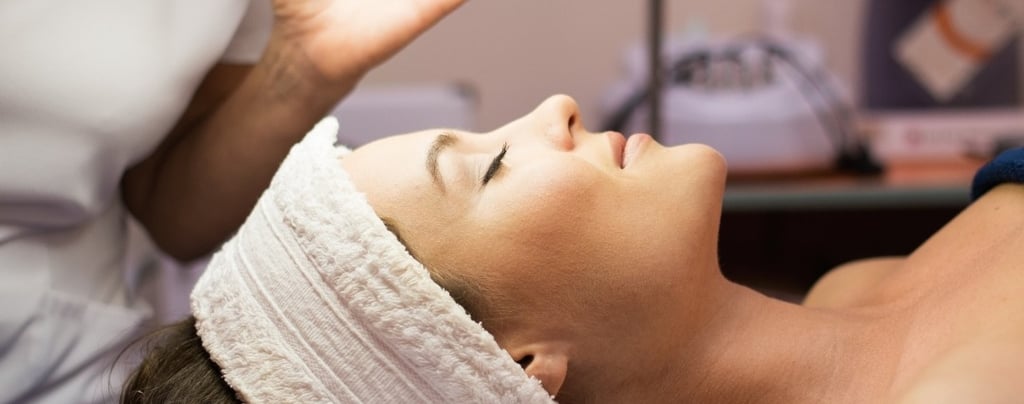Essential Skincare Ingredients to Look for After a Professional Facial Treatment
After a professional facial treatment, your skin is in a delicate state. While the facial may leave your skin feeling rejuvenated and glowing, it’s important to support the healing process with the right ingredients to maintain the benefits of your treatment and promote overall skin health. The skin’s barrier may be temporarily compromised, so selecting gentle, nourishing products that aid in hydration, protection, and repair is key. Below are some essential skincare ingredients to look for after a facial treatment to help your skin recover and continue to glow.
3/31/20254 min read


After a professional facial treatment, your skin is in a delicate state. While the facial may leave your skin feeling rejuvenated and glowing, it’s important to support the healing process with the right ingredients to maintain the benefits of your treatment and promote overall skin health. The skin’s barrier may be temporarily compromised, so selecting gentle, nourishing products that aid in hydration, protection, and repair is key. Below are some essential skincare ingredients to look for after a facial treatment to help your skin recover and continue to glow.
1. Hyaluronic Acid
Hyaluronic acid is one of the most hydrating and soothing ingredients you can use after a facial. It has the ability to attract moisture from the environment and bind it to the skin, helping to keep it hydrated and plump. After a facial, your skin may experience some dehydration due to exfoliation or other treatments, and hyaluronic acid helps to restore moisture levels without being too heavy or irritating. Look for serums or moisturizers that contain this ingredient to replenish your skin’s hydration.
2. Vitamin C
Vitamin C is a powerful antioxidant that can help brighten your skin and protect it from environmental damage, particularly from harmful UV rays and pollution. After a professional facial, especially one that includes exfoliation or extractions, your skin may be more sensitive and prone to oxidative stress. Vitamin C helps to repair the skin, reduce the appearance of dark spots, and stimulate collagen production, which can enhance the results of your facial. However, be cautious if your skin is particularly sensitive, as high concentrations of Vitamin C can cause irritation.


3. Peptides
Peptides are short chains of amino acids that act as the building blocks for proteins like collagen and elastin. These proteins are crucial for maintaining the skin’s strength, elasticity, and overall appearance. After a facial, especially one that includes treatments like microdermabrasion or chemical peels, peptides can support the skin’s natural repair process and help to strengthen the skin barrier. Look for moisturizers or serums that include peptides to encourage skin regeneration and improve texture and tone.
4. Niacinamide (Vitamin B3)
Niacinamide is a multi-functional ingredient that is beneficial for a wide range of skin concerns, especially post-facial. It has anti-inflammatory properties, which can soothe irritation and redness that may occur after a treatment. Niacinamide also helps to improve the skin barrier, increase hydration, and minimize the appearance of pores. It’s gentle on the skin and won’t cause irritation, making it a great choice for anyone with sensitive skin after a facial.
5. Ceramides
Ceramides are lipids (fat molecules) naturally found in the skin and are vital for maintaining the skin’s moisture barrier. After a facial, your skin may be more vulnerable to dehydration or irritation, so using products with ceramides helps to lock in moisture, restore the skin's barrier, and keep your skin feeling smooth and nourished. A good moisturizer containing ceramides can prevent moisture loss and protect your skin from external aggressors.
6. Aloe Vera
Aloe vera is known for its soothing, anti-inflammatory properties and is often used to calm skin after a facial treatment. If you have any redness, irritation, or sensitivity after your facial, aloe vera can provide instant relief. It helps cool the skin, reduce inflammation, and promote healing. Many post-facial masks or gels include aloe vera as a primary ingredient, offering immediate comfort and hydration.
7. Squalane
Squalane is a lightweight, non-comedogenic oil that deeply moisturizes the skin without clogging pores. It helps to balance the skin’s natural oils and restore hydration, which is especially important after a facial treatment that may leave your skin feeling a little dry or tight. Squalane is suitable for all skin types and is a great option for nourishing the skin post-facial, ensuring that your skin stays soft and well-moisturized.


8. Arnica
Arnica is an herb known for its natural anti-inflammatory properties. It’s often used in post-treatment skincare products to reduce swelling, bruising, and irritation. If your facial involved extractions or more invasive treatments (like microneedling or chemical peels), arnica can help calm any lingering inflammation or redness. Look for post-facial creams or serums that contain arnica to assist in the healing process and minimize any discomfort or visible irritation.
9. Glycolic Acid (or Lactic Acid)
While exfoliating acids may sound counterintuitive after a facial, gentle use of AHA (alpha-hydroxy acid) like glycolic acid or lactic acid can promote skin renewal by sloughing off dead skin cells without causing further irritation. If your facial included deep cleansing or exfoliation, these acids can help maintain smooth, fresh skin by encouraging the removal of dead cells and preventing clogged pores. Be sure to use these ingredients in moderation, and look for formulations with a lower concentration to avoid overstimulating the skin.
10. Zinc Oxide
Zinc oxide is an essential ingredient to look for in sunscreens or post-treatment products because of its ability to protect the skin from harmful UV rays. After a facial, your skin may be more sensitive to the sun, and UV exposure can lead to irritation or hyperpigmentation. Zinc oxide forms a protective barrier on the skin, shielding it from UVA and UVB rays. Applying a sunscreen with zinc oxide after your facial is crucial to prevent sun damage and maintain the treatment’s benefits.
11. Witch Hazel
Witch hazel is a natural astringent that can help tighten pores and reduce inflammation, making it a great option for those with oily or acne-prone skin. After a facial, especially one that involved extractions, your pores may still be open and more vulnerable to bacteria. Witch hazel helps to tone and soothe the skin, reducing any redness or irritation. Look for witch hazel in toners or soothing gels that can be applied after your facial to help maintain clear, calm skin.
Conclusion
Choosing the right skincare products after a professional facial treatment is essential to maximize the results and promote skin healing. Look for ingredients that provide hydration, support skin barrier repair, and soothe any irritation or sensitivity. Hyaluronic acid, vitamin C, peptides, niacinamide, ceramides, aloe vera, squalane, arnica, glycolic acid, and zinc oxide are all excellent ingredients that can help your skin stay balanced, nourished, and protected. Remember to also follow the aftercare instructions provided by your aesthetician to ensure the best possible results and avoid aggravating your skin post-treatment.
Facial Bangkok
Discover top-notch treatments for ultimate facial rejuvenation in Bangkok - Thailand.
Guide
© 2026. All rights reserved. Designed by Pimclick SEO Agency
Article
